Maintaining Your Makeup Arsenal: The Importance Of Brush Cleaning
Maintaining Your Makeup Arsenal: The Importance of Brush Cleaning
Related Articles: Maintaining Your Makeup Arsenal: The Importance of Brush Cleaning
Introduction
With great pleasure, we will explore the intriguing topic related to Maintaining Your Makeup Arsenal: The Importance of Brush Cleaning. Let’s weave interesting information and offer fresh perspectives to the readers.
Table of Content
- 1 Related Articles: Maintaining Your Makeup Arsenal: The Importance of Brush Cleaning
- 2 Introduction
- 3 Maintaining Your Makeup Arsenal: The Importance of Brush Cleaning
- 3.1 The Unsanitary Truth: Why Clean Makeup Brushes?
- 3.2 The Benefits of Regular Brush Cleaning: A Healthy Makeup Routine
- 3.3 Choosing the Right Brush Cleaner: Navigating the Options
- 3.4 The Art of Cleaning: Techniques for Every Brush Type
- 3.5 Frequency of Cleaning: Maintaining a Consistent Routine
- 3.6 Essential Tips for Effective Brush Cleaning
- 3.7 FAQs: Addressing Common Concerns
- 3.8 Conclusion: Maintaining a Healthy Makeup Routine
- 4 Closure
Maintaining Your Makeup Arsenal: The Importance of Brush Cleaning

In the realm of beauty, makeup brushes serve as the essential tools for applying and blending cosmetics, enhancing the overall look and feel of any makeup application. However, just like any other tool, makeup brushes require regular maintenance to ensure optimal performance and hygiene. Neglecting this crucial step can lead to a range of issues, from clogged pores and breakouts to diminished product quality and even bacterial growth.
This comprehensive guide delves into the significance of cleaning makeup brushes, exploring the benefits, techniques, and essential considerations to maintain a healthy and effective makeup application routine.
The Unsanitary Truth: Why Clean Makeup Brushes?
The seemingly innocent act of applying makeup with brushes can harbor a hidden threat – bacteria. Over time, makeup brushes accumulate a cocktail of bacteria, oils, dead skin cells, and leftover makeup products. This buildup can lead to several detrimental consequences:
- Skin Irritations and Breakouts: Dirty brushes can transfer bacteria and irritants to the skin, leading to acne, rashes, and other skin problems.
- Clogged Pores: Accumulated makeup residue can clog pores, hindering the skin’s ability to breathe and potentially leading to breakouts.
- Compromised Makeup Application: Dirty brushes impede the smooth application of makeup, resulting in uneven coverage, streaking, and a less polished look.
- Reduced Product Longevity: Unclean brushes can harbor bacteria that degrade makeup products, shortening their lifespan and potentially affecting their quality.
- Health Risks: In extreme cases, contaminated brushes can lead to more severe infections, particularly for individuals with sensitive skin or pre-existing skin conditions.
The Benefits of Regular Brush Cleaning: A Healthy Makeup Routine
Investing time in cleaning makeup brushes offers a multitude of benefits, ensuring a healthy and effective makeup application experience:
- Enhanced Skin Health: Regular cleaning eliminates bacteria and other contaminants, promoting healthy skin and reducing the risk of breakouts and irritation.
- Improved Makeup Application: Clean brushes apply makeup evenly, resulting in a flawless and polished finish.
- Extended Product Lifespan: Clean brushes preserve the quality of makeup products, extending their lifespan and maximizing their effectiveness.
- Reduced Risk of Infection: Maintaining clean brushes significantly reduces the risk of infections, especially for individuals with sensitive skin or compromised immune systems.
- A Hygienic Makeup Routine: Regular brush cleaning contributes to a hygienic makeup routine, ensuring the safety and well-being of your skin.
Choosing the Right Brush Cleaner: Navigating the Options
The market offers a wide array of makeup brush cleaners, each with its unique features and benefits. Here’s a breakdown of the most common types:
- Liquid Brush Cleaners: These cleaners are typically formulated with gentle ingredients that effectively remove makeup residue and bacteria without drying out the bristles. Many liquid cleaners come in various forms, including sprays, gels, and solutions.
- Solid Brush Soaps: Solid brush soaps offer a convenient and travel-friendly option. They are typically formulated with natural ingredients like olive oil or coconut oil, providing a gentle and effective clean.
- Brush Cleaning Mats: These mats feature textured surfaces that help loosen makeup residue and provide a convenient platform for cleaning. They are often used in conjunction with liquid cleaners or soaps.
- Natural Solutions: For a more natural approach, consider using mild soap and warm water. However, ensure the soap is free of harsh chemicals and fragrances to avoid irritating the skin.
The Art of Cleaning: Techniques for Every Brush Type
The cleaning technique for makeup brushes varies depending on the brush type and the severity of the buildup. Here’s a comprehensive guide to cleaning different brush types:
General Cleaning Technique:
- Wet the Bristles: Gently wet the bristles of the brush under lukewarm water. Avoid soaking the entire brush, as this can damage the glue holding the bristles together.
- Apply Cleaner: Dispense a small amount of brush cleaner onto the palm of your hand or a cleaning mat. Gently swirl the bristles in the cleaner, ensuring all parts of the brush are covered.
- Rinse and Repeat: Rinse the bristles thoroughly under running water until all traces of makeup and cleaner are removed. Repeat steps 2 and 3 if necessary.
- Reshape and Dry: Gently reshape the bristles and lay the brush flat on a clean towel to dry. Avoid drying brushes upright, as this can cause water to seep into the handle and damage the glue.
Specific Brush Cleaning Techniques:
- Foundation Brushes: These brushes require thorough cleaning due to the heavy buildup of foundation and other products. Use a gentle liquid cleaner or a brush cleaning mat to remove all residue.
- Blush Brushes: Blush brushes are typically less heavily soiled, but they still require regular cleaning. Use a mild soap and warm water or a gentle brush cleaner.
- Eyeshadow Brushes: Eyeshadow brushes are delicate and require a gentle approach. Use a mild brush cleaner or a natural solution like baby shampoo and warm water.
- Eyeliner Brushes: Eyeliner brushes are often used with gel or liquid liners, which can be difficult to remove. Use a specialized brush cleaner or a cotton swab dipped in makeup remover.
- Spooly Brushes: Spooly brushes, used for brows and lashes, require a gentle cleaning. Use a mild soap and warm water or a brush cleaning mat.
- Powder Brushes: Powder brushes are typically less heavily soiled, but they still require regular cleaning. Use a gentle brush cleaner or a natural solution like baby shampoo and warm water.
Frequency of Cleaning: Maintaining a Consistent Routine
The frequency of brush cleaning depends on how often you use them and the types of makeup you apply. As a general rule, aim to clean your brushes:
- Weekly: For brushes used for foundation, concealer, and other heavy-coverage products.
- Bi-Weekly: For brushes used for blush, bronzer, and eyeshadow.
- Monthly: For brushes used for powder and other lighter products.
Essential Tips for Effective Brush Cleaning
- Use a Gentle Touch: Avoid harsh scrubbing, as this can damage the bristles and loosen the glue holding them together.
- Avoid Soaking: Soaking brushes for prolonged periods can damage the bristles and the glue.
- Dry Thoroughly: Ensure brushes are completely dry before storing to prevent mold and mildew growth.
- Clean the Handle: Don’t forget to clean the handle of the brush, as this can also accumulate bacteria and dirt.
- Store Properly: Store brushes in a clean, dry place to prevent dust and bacteria buildup.
FAQs: Addressing Common Concerns
Q: How often should I clean my makeup brushes?
A: The frequency of cleaning depends on the type of brush and the type of makeup used. Brushes used for foundation, concealer, and other heavy-coverage products should be cleaned weekly. Brushes used for blush, bronzer, and eyeshadow can be cleaned bi-weekly. Brushes used for powder and other lighter products can be cleaned monthly.
Q: Can I use soap and water to clean my makeup brushes?
A: Yes, you can use mild soap and warm water to clean your makeup brushes. However, ensure the soap is free of harsh chemicals and fragrances to avoid irritating the skin.
Q: What are the best brush cleaners for sensitive skin?
A: Look for brush cleaners formulated with gentle ingredients and free of harsh chemicals, fragrances, and dyes. Some popular options include:
- Beautyblender Solid Cleanser: A gentle solid cleanser formulated with natural ingredients.
- Sigma Spa Brush Cleaning Set: A gentle brush cleaner designed for sensitive skin.
- Sephora Collection Brush Cleaning Set: A brush cleaning set with a gentle formula and a convenient travel-sized brush cleaner.
Q: Can I use alcohol to clean my makeup brushes?
A: Alcohol can be harsh on bristles and can damage the glue holding them together. It is not recommended for cleaning makeup brushes.
Q: Can I wash my makeup brushes in the washing machine?
A: It is not recommended to wash makeup brushes in the washing machine. The high heat and agitation can damage the bristles and loosen the glue holding them together.
Q: How do I know if my makeup brushes are clean?
A: If the water runs clear after rinsing the brush, it is likely clean. If the water still has traces of makeup or cleaner, rinse the brush again.
Q: What should I do if my makeup brushes are moldy?
A: If your makeup brushes are moldy, it is best to discard them. Mold can be difficult to remove and can be harmful to the skin.
Q: Can I use a hairdryer to dry my makeup brushes?
A: It is not recommended to use a hairdryer to dry makeup brushes. The heat from the hairdryer can damage the bristles and loosen the glue holding them together.
Conclusion: Maintaining a Healthy Makeup Routine
Cleaning makeup brushes is an essential part of any healthy and effective makeup routine. By regularly cleaning your brushes, you can ensure that your skin is protected from bacteria and irritants, your makeup application is flawless, and your makeup products last longer.
Invest in a high-quality brush cleaner and follow the cleaning techniques outlined in this guide to maintain a hygienic and effective makeup routine. Remember, clean brushes are a crucial investment in your skin’s health and beauty.

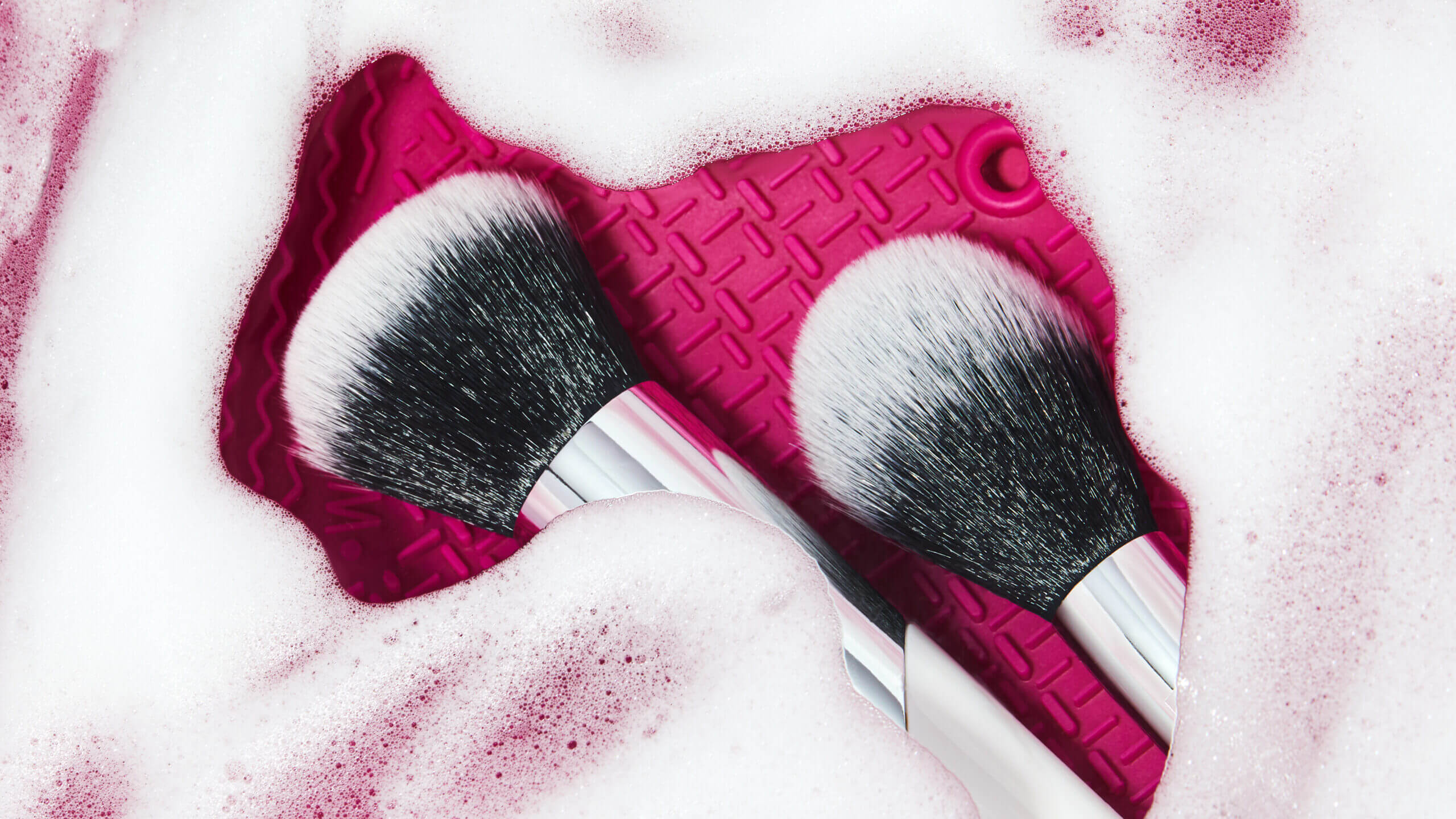
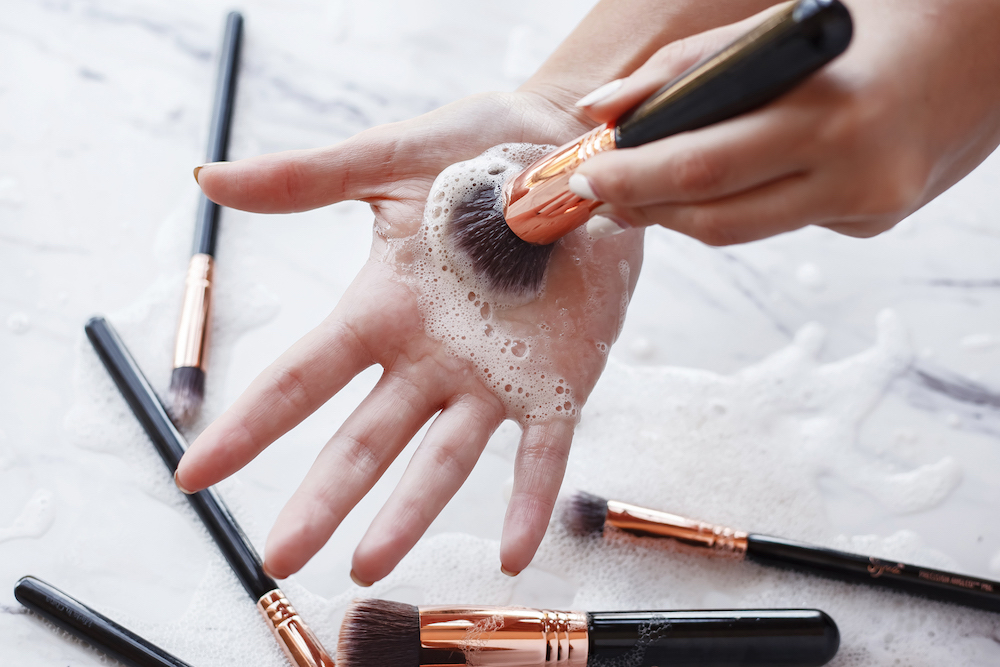
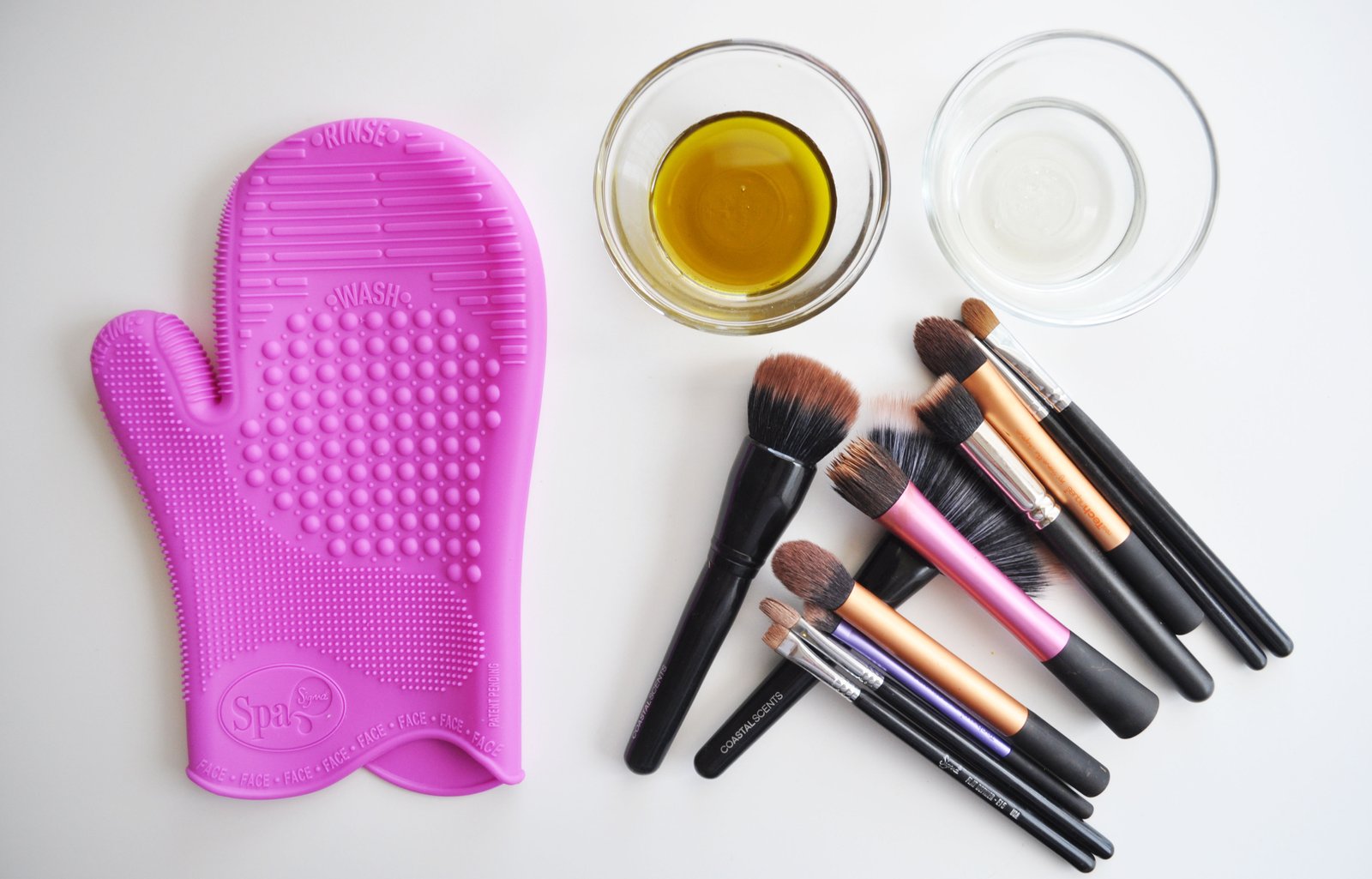
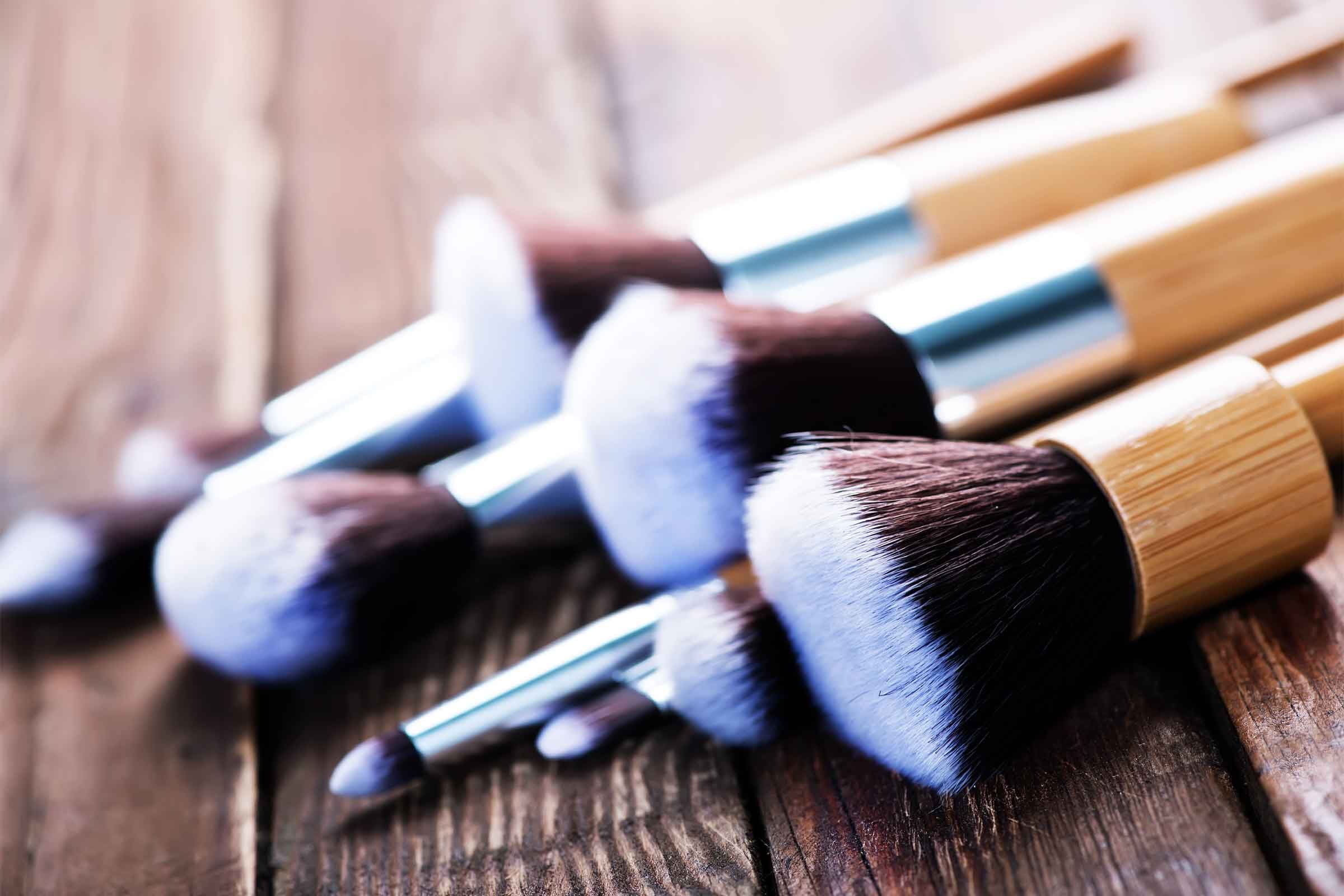
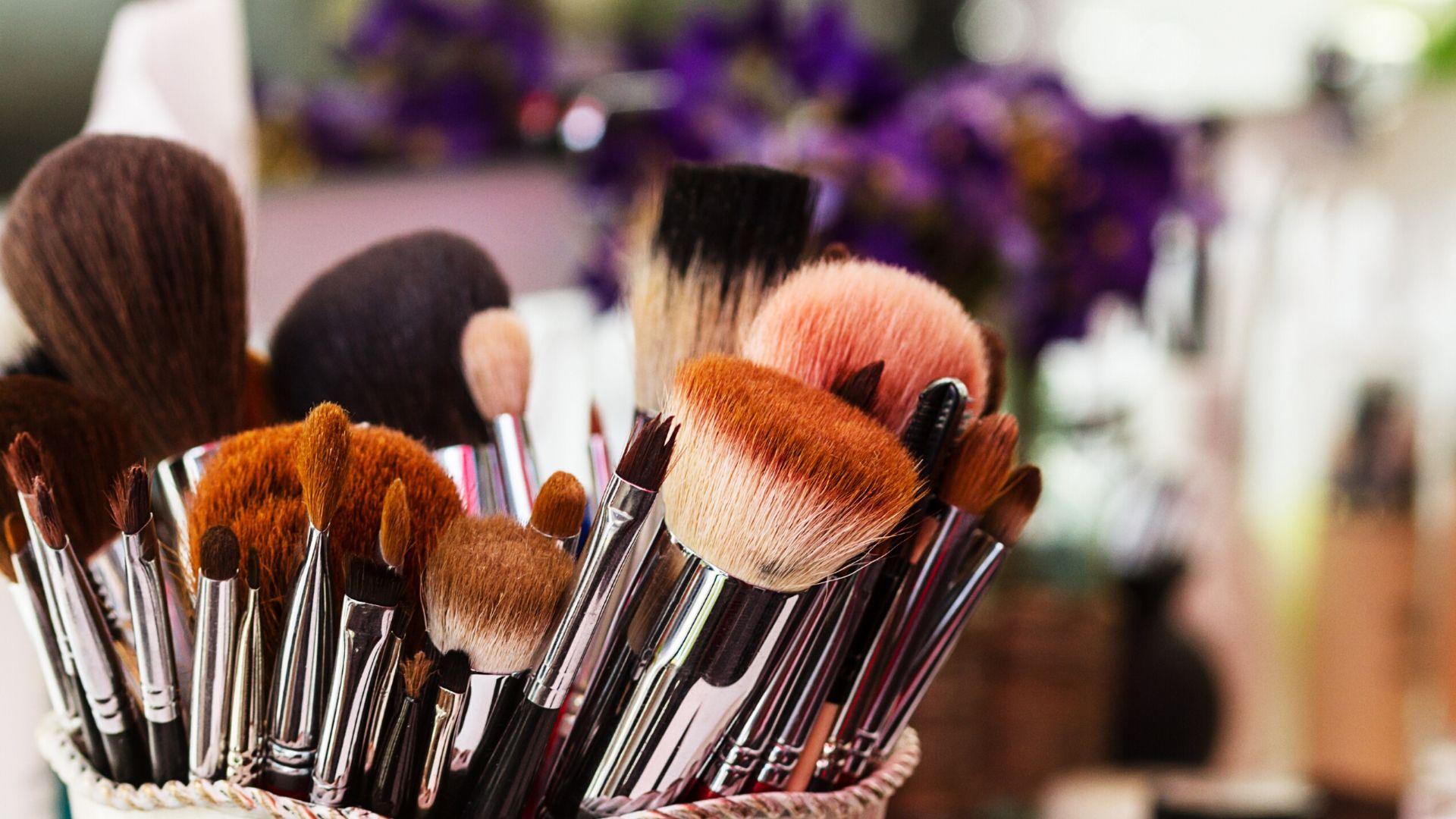
:max_bytes(150000):strip_icc()/makeup-brush-guide-FINAL-5ea9f9bbf4b94eff9edddcbb1ce8545c-737a1f95820249c987dba4a102b4f082.jpg)

Closure
Thus, we hope this article has provided valuable insights into Maintaining Your Makeup Arsenal: The Importance of Brush Cleaning. We appreciate your attention to our article. See you in our next article!
You may also like
Recent Posts
- Mastering The Art Of Eye Makeup: A Comprehensive Guide To The Color Wheel
- The Art Of Enhancement: A Comprehensive Guide To Makeup
- The Ultimate Guide To Makeup Bags For Travel: Organization, Style, And Essential Considerations
- A Guide To Makeup At Walmart For Kids: Exploring Options And Considerations
- A Comprehensive Guide To Makeup Brands Beginning With C: From Classic To Cutting-Edge
- The Ultimate Guide To Finding The Perfect Makeup Chair: A Comprehensive Look At Kmart’s Offerings
- Navigating The World Of Makeup For Sensitive Skin: A Guide To Finding The Perfect Fit
- The Ever-Evolving Canvas: Exploring Makeup Designs Through The Decades
Leave a Reply